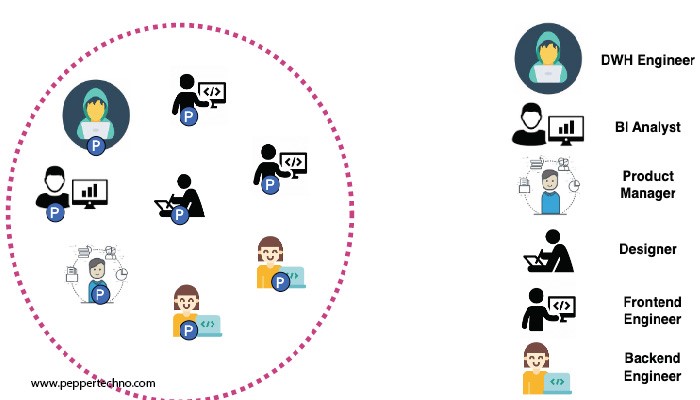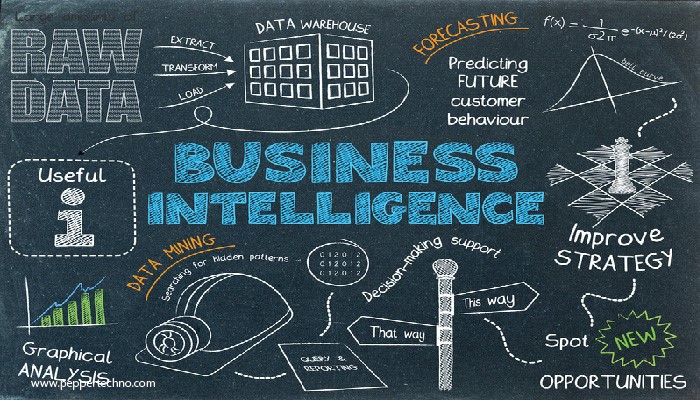Unleashing the Power of Business Intelligence Teams: A Strategic Imperative for Modern Enterprises
In the fast-paced and competitive landscape of today’s business world, organizations are constantly seeking ways to gain a competitive edge. One of the key strategies that have emerged as a game-changer is the establishment of robust Business Intelligence teams. These teams play a pivotal role in turning raw data into actionable insights, enabling companies to make informed decisions and drive innovation. In this article, we will explore the importance of BI teams, their functions, and how they contribute to the overall success of modern enterprises.

I. The Evolution of Business Intelligence
A. Historical Perspective
Business Intelligence has come a long way since its inception. Initially, it revolved around basic reporting tools, offering hindsight into past performance. However, as technology advanced, so did the capabilities of BI. Today, BI encompasses a wide array of tools and techniques that not only provide historical data but also predictive and prescriptive analytics.
B. Shift towards Proactive Decision-Making
The traditional reactive approach to decision-making is no longer sufficient in the dynamic business environment. BI teams are instrumental in fostering a proactive decision-making culture within organizations. By leveraging advanced analytics and machine learning, these teams enable businesses to anticipate trends, identify opportunities, and mitigate risks before they escalate.
II. Functions of Business Intelligence Teams
A. Data Collection and Integration
At the core of BI lies data. BI teams are responsible for collecting, aggregating, and integrating data from various sources within and outside the organization. This includes structured and unstructured data, ensuring a comprehensive and holistic view of the business landscape.
B. Data Analysis and Visualization
Once the data is collected, BI teams employ sophisticated analytical tools to derive meaningful insights. Visualization tools play a crucial role in presenting complex data in a comprehensible manner. This empowers decision-makers at all levels of the organization to grasp insights quickly and make informed decisions.
C. Performance Monitoring and Reporting
BI teams continually monitor key performance indicators (KPIs) and generate regular reports to keep stakeholders informed about the organization’s performance. This real-time feedback loop allows for quick adjustments and ensures that the business remains agile in responding to market changes.
D. Predictive Analytics
One of the distinguishing features of modern BI teams is their ability to perform predictive analytics. By analyzing historical data and identifying patterns, BI teams can forecast future trends and outcomes.
III. Key Components of an Effective BI Team
A. Cross-Functional Expertise
A successful BI team comprises individuals with diverse skills. This includes data scientists, analysts, statisticians, and domain experts who understand the intricacies of the industry. Cross-functional collaboration ensures a comprehensive approach to problem-solving and insight generation.
B. Technological Proficiency
Given the rapid advancements in technology, BI teams must stay abreast of the latest tools and platforms. Proficiency in data warehousing, ETL (Extract, Transform, and Load) processes and visualization tools is essential. Cloud-based solutions are increasingly becoming the norm, allowing for scalability and flexibility.
C. Business Acumen
While technical expertise is crucial, a deep understanding of the business is equally important. BI teams need to align their efforts with the overall business strategy and goals. This requires effective communication and collaboration with stakeholders across different departments.
IV. The Impact of BI Teams on Decision-Making
A. Informed Decision-Making
The primary goal of BI teams is to empower decision-makers with accurate and timely information. By providing a 360-degree view of the business landscape, BI teams facilitate informed decision-making at every level of the organization. This, in turn, enhances the agility and responsiveness of the business.
B. Strategic Planning
BI teams contribute significantly to strategic planning by offering insights into market trends, customer behavior, and competitive landscapes. This foresight enables organizations to position themselves strategically, identify growth opportunities, and navigate challenges proactively.
C. Resource Optimization
Through detailed analysis of operational data, BI teams help optimize resource allocation. This includes identifying inefficiencies, streamlining processes, and maximizing the utilization of resources. The result is improved operational efficiency and cost-effectiveness.
V. Challenges and Future Trends in Business Intelligence
A. Data Security and Privacy
As BI teams handle sensitive and confidential information, data security and privacy are paramount concerns. With the increasing adoption of BI in cloud environments, organizations must implement robust security measures to safeguard against cyber threats.
B. Integration of Artificial Intelligence (AI)
The integration of AI into BI processes is an emerging trend. AI algorithms can enhance the speed and accuracy of data analysis, uncovering hidden patterns and trends that may go unnoticed with traditional methods. BI teams need to adapt to these technological advancements to stay ahead.
C. Self-Service BI
Empowering non-technical users to generate their own reports and insights is a growing trend in BI. This shift towards self-service BI reduces the dependency on IT departments and allows business users to explore and analyze data independently.
Conclusion
The role of Business Intelligence teams has evolved from being mere data collectors to strategic enablers of informed decision-making. As organizations recognize the importance of harnessing the power of data, BI teams will continue to play a central role in shaping the future of business. With the right talent, technology, and a commitment to aligning with business objectives, BI teams are poised to drive innovation, foster agility, and propel organizations towards sustained success in the dynamic business landscape.



